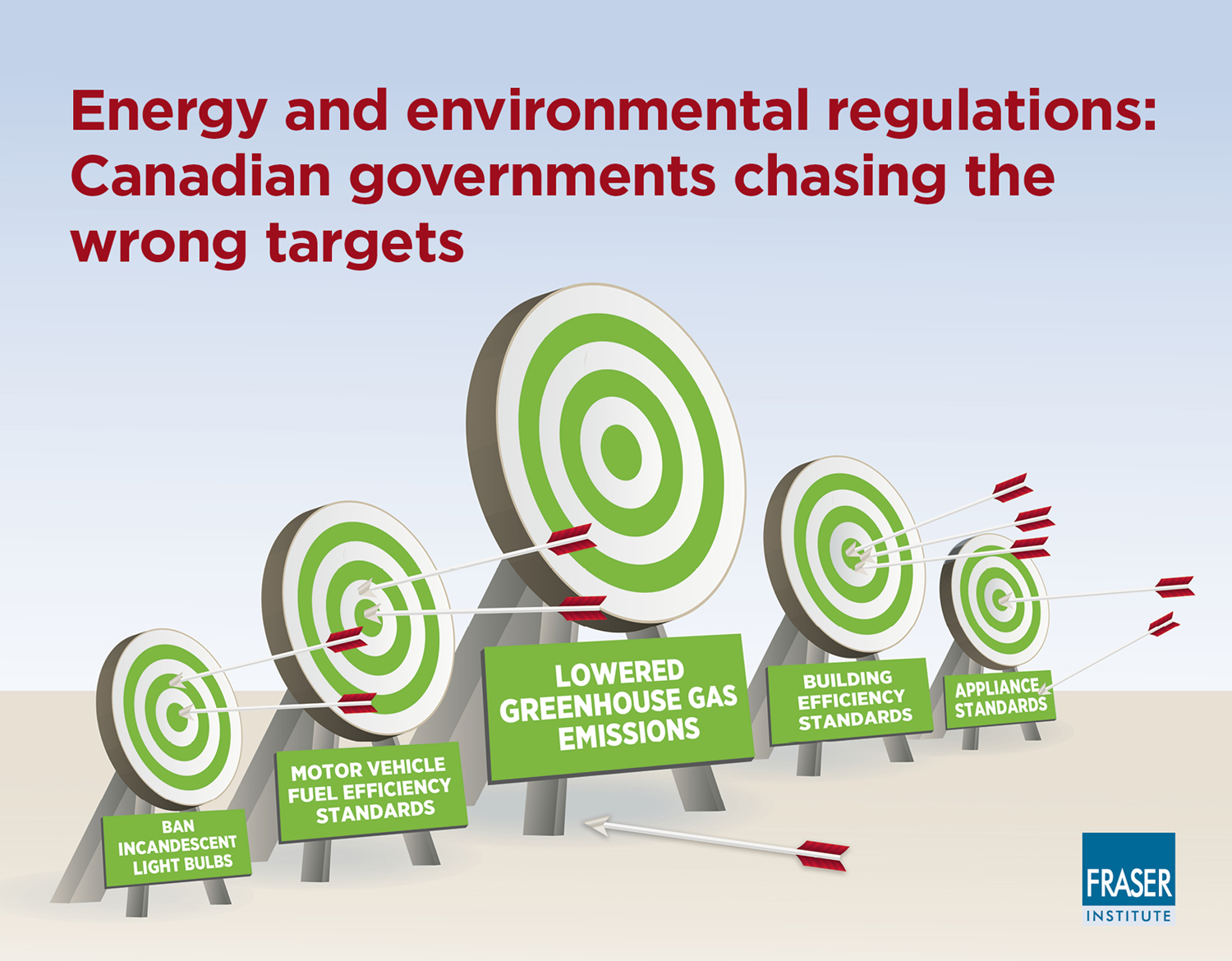Study
| EST. READ TIME 1 MIN.Governments missing the mark on energy and environmental regulations
The Principle of Targeting is a basic and simple rule for policymaking that helps minimize the cost of government intervention. Its core idea is that if a new regulation of some sort is required, the most efficient intervention targets the specific variable of direct interest. Many energy and environmental policies target surrogate variables that the government has no legitimate interest in. Furthermore, the rules are often expressed in forms that constrain activities the state has no reason to care about, which leads to economic inefficiency and unnecessary constraints on harmless private choices.
The Principle of Targeting is simple and intuitively obvious, but it is surprising how rarely it is followed in practice, especially in the areas of energy and environmental policy. Its application would make government regulation both more effective and less cumbersome and costly for society.

Share
-

Ross McKitrick
Professor of Economics, University of Guelph
Ross R. McKitrick is a Professor of Economics at the University of Guelph and a Senior Fellow of the Fraser Institute. Heis the author of Economic Analysis of Environmental Policy published by the University of Toronto Press in 2010. He has been actively studying climate change, climate policy and environmental economics since the mid-1990s. He built and published one of the first national-scale Computable General Equilibrium models for analysing the effect of carbon taxes on the Canadian economy in the 1990s. His academic publications have appeared in many top journals including the Journal of the Royal Statistical Society, Proceedings of the National Academy of Science, Journal of Geophysical Research, Climate Dynamics, Journal of Environmental Economics and Management, The Canadian Journal of Economics, Canadian Public Policy, Energy Economics, Journal of Forecasting, Climatic Change, Climate Change Economics and Environmental Economics and Policy Studies. He has also written policy analyses for numerous Canadian and international think tanks. Professor McKitrick appears frequently in Canadian and international media and is a regular contributor to the Financial Post Comment page. In addition to his economics research his background in applied statistics has led him to collaborative work across a wide range of topics in the physical sciences including paleoclimate reconstruction, malaria transmission, surface temperature measurement and climate model evaluation. Professor McKitrick has made many invited academic presentations around the world, and has testified before the US Congress and committees of the Canadian House of Commons and Senate. Professor McKitrick is widely-cited in Canada and around the world as an expert on global warming and environmental policy issues. He has been interviewed by Time, The New York Times, The Wall Street Journal, The National Post, The Globe and Mail, the CBC, BBC, ITV, Fox News, Bloomberg, Global TV, CTV, and others. His research has been discussed in such places as Nature, Science, The Economist, the MIT Technology Review, The National Post, The Globe and Mail and in a front page article in the The Wall Street Journal (Feb 14 2005).… Read more Read Less…
Related Topics
Related Articles
By: Kenneth P. Green
By: Kenneth P. Green
By: Julio Mejía and Elmira Aliakbari
By: Jock Finlayson and Elmira Aliakbari
